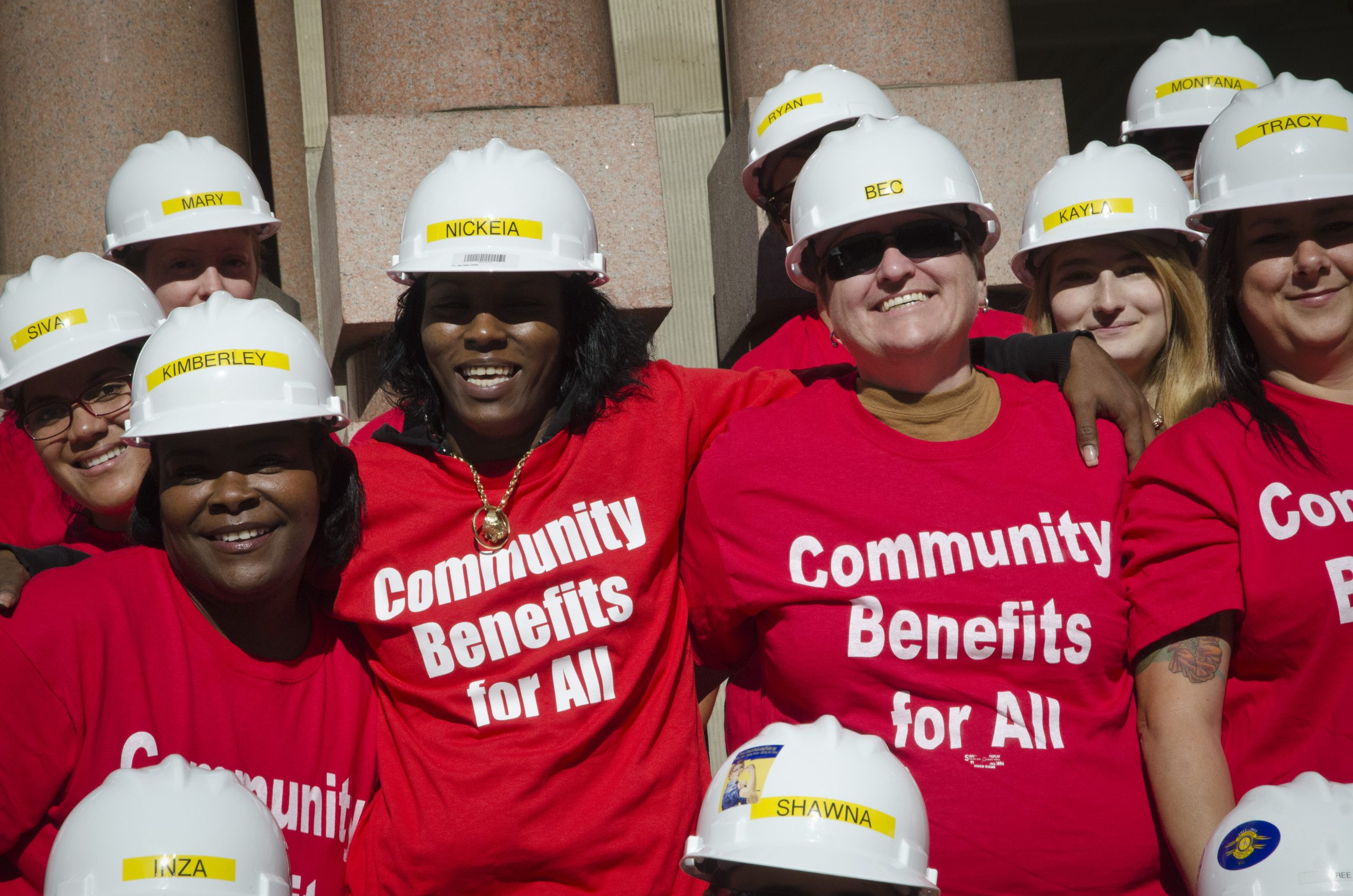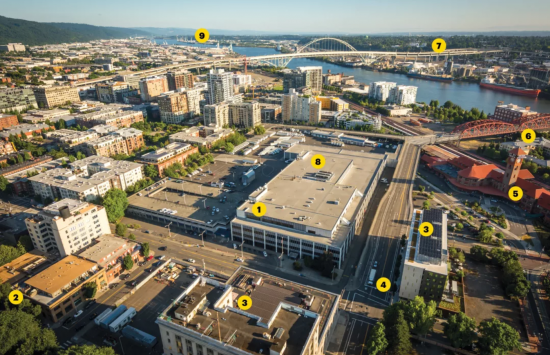Healthy Communities Coalition: Broadway Corridor Project

Oregon Tradeswomen is committed to ensuring women, people of color, low-income communities, and other historically disenfranchised groups benefit in publicly funded projects through access to quality job training, support services, job placement support and high-wage careers.
As part of our public policy and advocacy work, Oregon Tradeswomen endorses the Metropolitan Alliance for Workforce Equity (MAWE) Community Benefits Agreement model as a policy framework for ensuring access, opportunity, and equity on all publicly funded projects, including the Broadway Corridor Project.
We are working in coalition as a member of the Healthy Communities Coalition (HCC) – a group of 20+ organizations negotiating a legally-binding Community Benefits Agreement (CBA) with Prosper Portland, Continuum Partners, and the City of Portland on the Broadway Corridor redevelopment in downtown Portland. HCC wants to ensure that the City of Portland and Prosper Portland support standard-setting new benefits to advance good jobs, affordable housing, and equity for Black, Indigenous, People of Color, and working class communities.
The Broadway Corridor is 34 acres that connects or includes landmarks and neighborhoods such as Old Town Chinatown, the Pearl District, Union Station, the Pacific Northwest College of Art and the U.S. Post Office, which will be demolished as part of redevelopment. Historically, the Broadway Corridor has been the home for communities of color who have been forcibly displaced over the past century as a result of “the effects of racialized policies, practices, and decision-making.”
The Broadway Corridor is on the land that has been home for Multnomah, Wasco, Cowlitz, Kathlamet, Clackamas, bands of Chinook, Tualatin Kalapuya, Mollala and many other tribes. Black Americans, many of them porters who arrived from Union Station, lived in, created and supported Black-owned hotels and other businesses in the early 20th century. It was once the home of to Japanese Americans until the U.S. government’s internment order in 1942 that forced these Portlanders to leave their homes and businesses.

This August, the billion dollar development is almost able to move forward after an agreement was reached on the adoption of a development deal as well as a CBA. This consensus guarantees prevailing wages, full-family health care benefits, and the significant inclusion of minority-owned contractors throughout the construction process. In addition to these terms benefiting workers, goals for 100 percent renewable energy to achieve carbon neutrality have also been included.
As the Broadway Corridor Project is in motion, the Portland Housing Bureau committed to reaching out to Black, Japanese-American, and Chinese-Americans (groups who have historically resided in these neighborhoods) offering affordable housing. This effort underscores the integrity of this project, clearly distinguishing it from previous urban developments which have dislocated minority groups.
To oversee the agreed-upon goals, a 10-member committee appointed by HCC and Prosper Portland will be monitor progress on the project – the Broadway Corridor
Oregon Tradeswomen’s Workforce Equity Manager, Jay Richmond, commented on this historic project, noting, “The successful agreement for a CBA on the Broadway Corridor represents a sea change in the way development will be done in the region going forward. We’ve made sure there is meaningful investment in creating a pipeline of opportunity for women, people of color, and working families to enter into the trades. We secured 720 units of affordable housing, family wage jobs, and small business opportunities, as well as construction hiring goals which will have huge positive impacts for BIPOC communities. That said, we know this work has just begun, and look forward to making sure these goals are met through the ongoing oversight of the BCCOC.”
While we are celebrating this positive step, the hard work isn’t over. The Portland City Council must still review and accept the agreements, and the Broadway Corridor master plan is currently under review by the Portland Design Commission. Ultimately, we are hopeful the success of these negotiations will serve as the model for future projects to intentionally bring benefits to the communities where these construction projects happen.